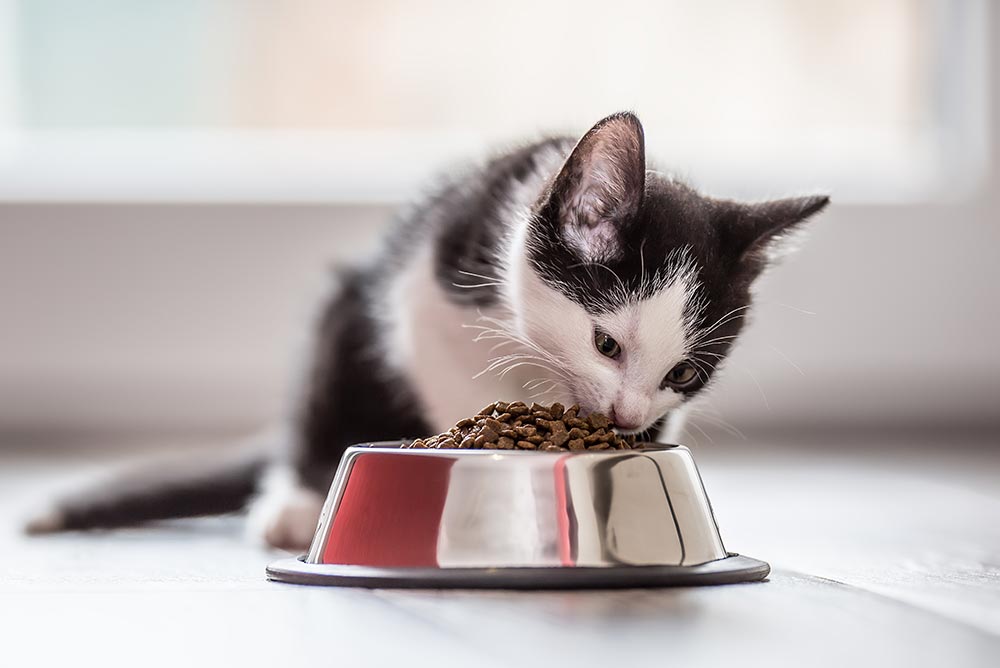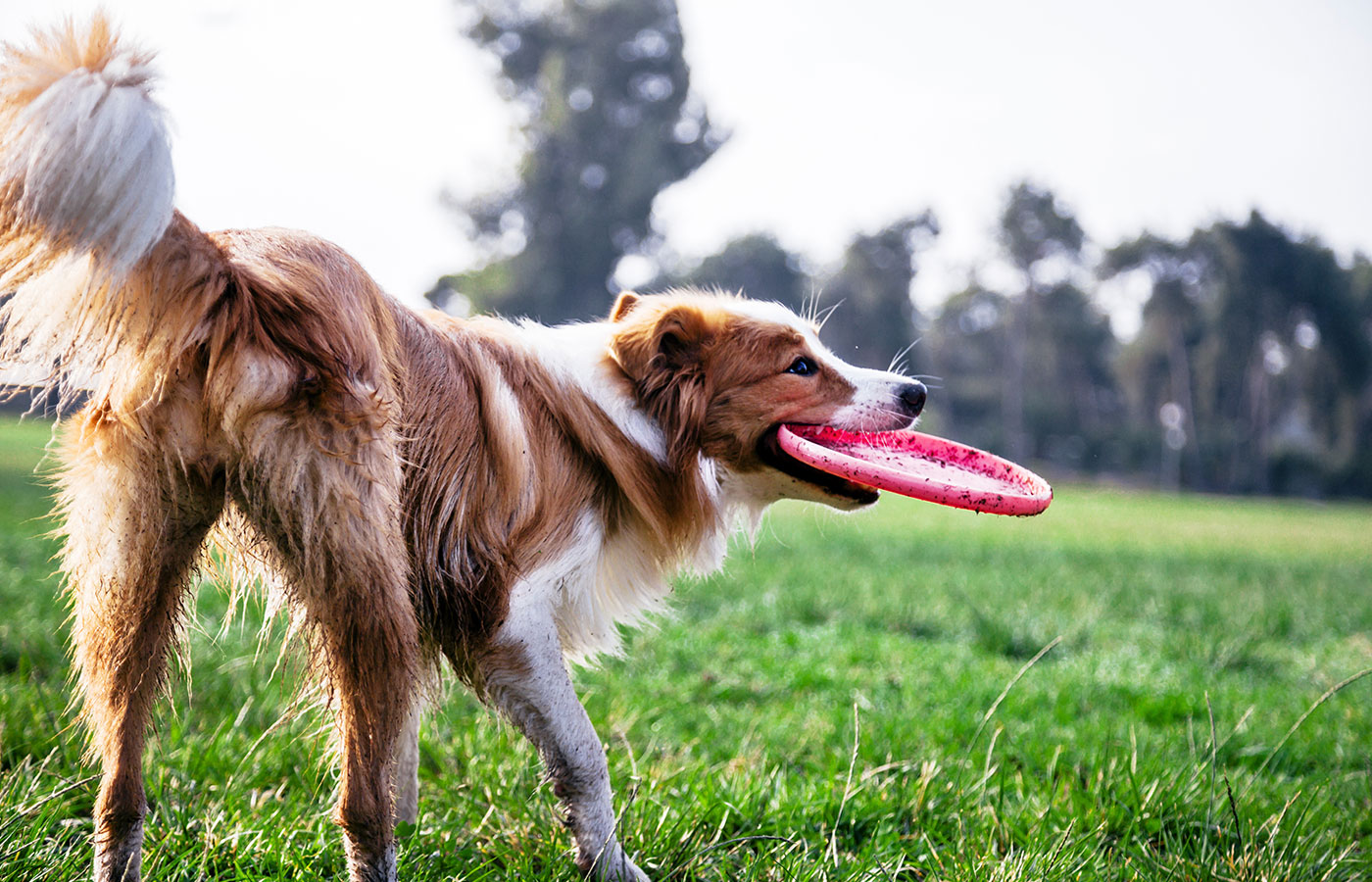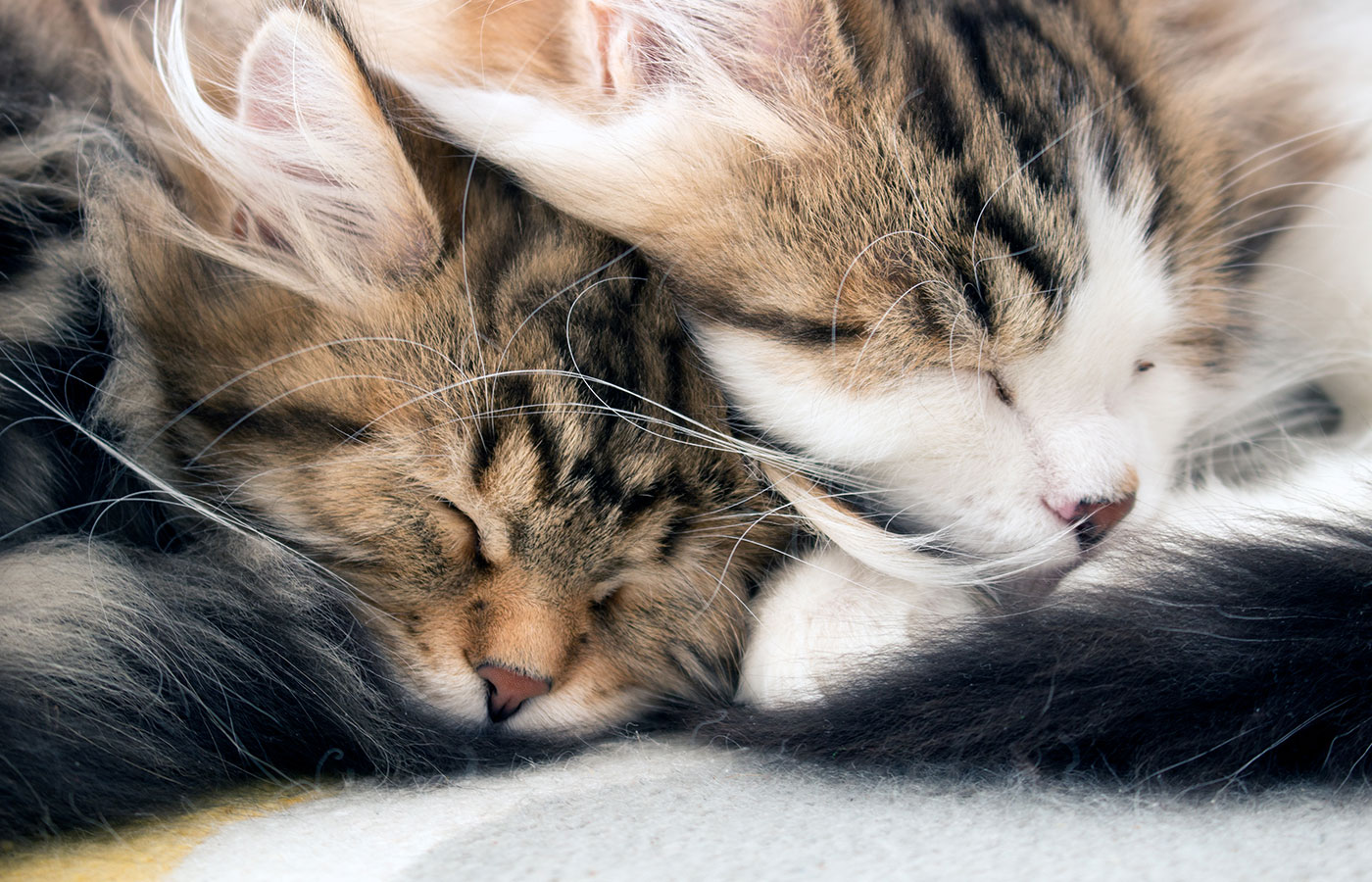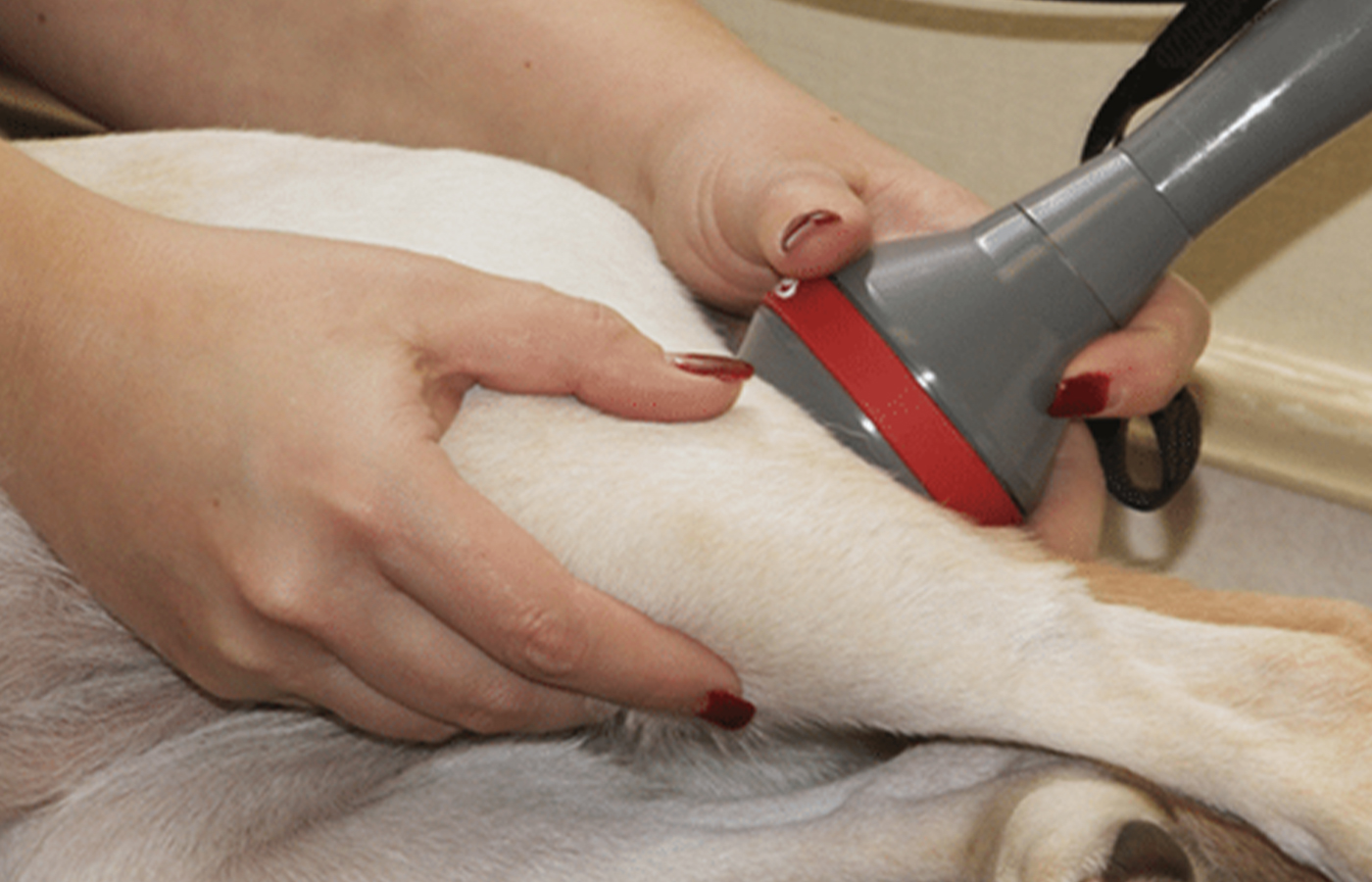Puppy Wellness

Congratulations on your new puppy! Thank you for choosing us to help protect and care for your new addition to your family.
Our puppy wellness program is designed to help get your puppy started on the right path to a long and
healthy life. The first few months are a critical period in your puppy’s development, and we can give you the support and
tools necessary to help him or her grow into a well-mannered, healthy dog, including information and advice on nutrition, training, behavior, and socialization.
Schedule your puppy for his or her first exam as soon as possible. Until your puppy has received a series of vaccines, he or she is susceptible to many serious but preventable diseases. We will make sure your new dog is protected against rabies, distemper, and parvovirus, among other diseases. Your puppy will also need to be tested and treated for parasites, which are extremely common in young dogs.
Most puppies have roundworms, which are intestinal worms that can cause vomiting, diarrhea, and other gastrointestinal signs (although dogs can have worms without showing any symptoms). It is important for puppies to be treated for roundworms, not only to rid them of the infection but also to prevent you and the rest of your family from becoming infected. Roundworms are a zoonotic parasite, which means they can be transmitted from pets to people. By ensuring that your puppy is properly treated, you can keep your entire family safe from these and other parasites.
We look forward to meeting your new puppy! Schedule your appointment today.
Read More
Kitten Wellness

Congratulations on your new kitten! Thank you for choosing us to help protect and care for your new addition to your family.
Our kitten wellness program is designed to help get your kitten started on the right path to a long and
healthy life. The first few months are a critical period in your kitten’s development, and we can give you the support and
tools necessary to help him or her grow into a well-mannered, healthy cat, including information and advice on nutrition, litterbox training, and behavior.
Schedule your kitten for his or her first exam as soon as possible. Until your kitten has received a series of vaccines, he or she is susceptible to many serious but preventable diseases. We will make sure your new pet is protected against rabies and panleukopenia (distemper). Depending on your cat’s risk, we may also advise vaccinating him or her against other diseases, such as feline leukemia virus (FeLV) and feline immunodeficiency virus (FIV). In addition, your kitten will need to be tested and treated for parasites, which are common in young cats.
Most kittens have roundworms, which are intestinal worms that can cause coughing, weight loss, and a potbellied appearance in cats (although they may not cause any symptoms). It is important for kittens to be treated for roundworms, not only to help rid them of the infection but also to prevent you and the rest of your family from becoming infected. Roundworms are a zoonotic parasite, which means they can be transmitted from pets to people. By ensuring that your kitten is properly treated, you can keep your entire family safe.
We look forward to meeting your new kitten! Schedule your appointment today.
Read More
Adult Pet Wellness

Bringing your pet in for an annual diagnostic and wellness checkup can help reassure you that your dog or cat is healthy or help us detect hidden diseases or conditions early. Early detection can improve the prognosis of
many diseases, keep medical costs down, and help your pet live longer. Many dogs and cats are good at hiding signs that
something is wrong, so subtle changes in their health or behavior might be easy to overlook. And, depending on the disease, some pets don’t show any symptoms.
Dogs and cats age far quicker than humans, so it is even more crucial for our companion animals to receive regular exams. In addition, the risks of arthritis, cancer, diabetes, heart disease, hormone disorders, and kidney and liver problems all increase with age.
During your pet’s wellness exam, we will perform a physical assessment, checking your dog or cat from nose to tail. We will also make sure your pet receives appropriate vaccinations and preventives. We will perform a diagnostic workup, which may include blood, fecal, and urine tests to check for parasites and underlying diseases. We may also recommend that your pet receive dental care. When your pet is nearing his or her senior years, we will recommend a baseline exam and diagnostic workup so we’ll know what’s normal for your pet. This will enable us to keep track of any changes.
Because you spend the most time with your pet, you are your pet’s expert, as well as his or her greatest advocate. Please let us know if you’ve noticed any physical or behavioral changes in your pet, as well as any other concerns you might have.
Call us today to schedule your pet’s exam! If you have any questions, we would be happy to discuss our adult wellness program in more detail.
Read More
Senior Pet Wellness

As dogs and cats get older, they need more attention and special care. Our senior wellness program can help your pet remain fit and healthy as he or she ages and help us catch any potential problems earlier, when they’re
easier to treat or manage. Regular veterinary exams can actually help your pet live longer, too!
Diagnosing diseases and
certain conditions early is important throughout a pet’s life, but it becomes even more critical when your dog or cat enters his or her senior years. The risks of arthritis, cancer, diabetes, heart disease, hormone disorders, and kidney and liver problems all increase with age. In addition, dogs and cats may not show any signs of even serious diseases until they are quite advanced.
Senior status varies depending on your pet’s breed and size. Smaller dogs tend to live longer than larger dogs, and cats generally live longer than dogs. We can help you determine what life stage your pet is in.
Before your dog or cat reaches senior status, we recommend that you bring your pet in for a baseline exam and diagnostic workup. This will give us a record of what’s normal for your pet so we can keep track of any changes. In most cases, we suggest this checkup for when your dog turns 7 years of age or your cat turns 8 years of age. Thereafter, your senior pet will benefit from more frequent veterinary exams and diagnostic testing.
We can treat many symptoms that are commonly attributed to age, including those associated with cognitive dysfunction syndrome (similar to Alzheimer’s in humans). We can also improve your pet’s quality of life in many ways: by identifying and preventing or reducing pain, recommending an appropriate nutrition and exercise plan, and suggesting environmental modifications to keep your pet comfortable.
We will tailor a senior wellness plan to your pet’s individual needs. If you have any questions, we would be happy to discuss our senior wellness program in more detail. Call us today to schedule your pet’s exam!
Read More
Sick Care

We understand the stress of dealing with a sick pet. Your pet will receive the highest quality care during their stay with us. Our friendly and trustworthy staff is fully equipped to handle all of your pet's medical needs. Whether it's something minor that can be treated as an outpatient procedure or something more severe where your pet would need to have an extended hospitalization.
We have the capability to do simply day board for observation or perhaps you pet will need to stay in our ICU suite, either way you can rest assured your pet is in good caring hands.
We take extra special care of them during their whole stay with us. We truly do treat them as if they were our own. Read More
We have the capability to do simply day board for observation or perhaps you pet will need to stay in our ICU suite, either way you can rest assured your pet is in good caring hands.
We take extra special care of them during their whole stay with us. We truly do treat them as if they were our own. Read More
Nutritional Counseling

Information coming soon.
Pet Health Resources

Has your pet been diagnosed with a condition that you are unfamiliar with? Are you interested in learning more about how a particular drug works? Would you like more information or advice on behavior, nutrition, or
administering medications? We are always here to discuss these topics and more, but sometimes you may want to investigate or
explore on your own, which is why we provide an extensive collection of pet health information.
Considering the wide availability of information on the Internet, it can be difficult to differentiate between what’s trustworthy and what’s not. The Pet Health section of our website contains accurate, current, and reliable information on a wide variety of topics. Feel free to search through our articles, educational programs, tips, and videos, and contact us with any questions you might have.
Read More
Dental Care

Imagine what your mouth would feel like if you never brushed your teeth or went to the dentist. For many dogs and cats, this is a painful reality. According to the American Veterinary Dental Society, more than 80% of dogs
and 70% of cats have dental disease by the age of 3. Dental (or periodontal) disease is the most frequently diagnosed health
problem in pets.
Common signs of dental disease include:
Even if your dog or cat doesn’t have these symptoms, we recommend that you have a veterinarian evaluate your pet’s dental health at least once a year. Bacteria and food debris accumulate around the teeth and, if left unchecked, will lead to deterioration of the soft tissue and bone surrounding the teeth. This decay can result in irreversible periodontal disease, tooth loss, and possibly expensive oral surgery.
Dental disease can also affect other organs in the body: Bacteria in the mouth can get into the bloodstream and cause serious infections in the kidneys, liver, lungs, and heart. If these problems aren’t caught and treated quickly enough, they can result in death. A physical exam combined with appropriate laboratory work can determine if infection in the mouth has spread.
Schedule your pet’s dental exam today! We can also help show you how to brush your pet’s teeth and recommend foods and treats that will help combat plaque and tartar buildup.
Read More
- Yellow or brown buildup (tartar) on the teeth
- Red, swollen, or bleeding gums
- Bad breath
- Excessive drooling
- Changes in eating or chewing habits
- Pawing at the face
- Loose teeth
- Depression
Flea Prevention

Fleas can cause problems for pets ranging from minor to life-threatening. Not only can these parasites cause severe itching, irritation, and allergies, but they can also transmit tapeworms and diseases. Fleas can infest dogs, cats,
ferrets, mice, and rats. And fleas don’t just stay on pets; they can bite people, too. For more information, contact us or see the
flea article in the Pet Health Library on our site.
You don’t want these blood-sucking parasites on your pet or in your home. We can help keep them away or help you get rid of them if they’ve already found their way inside. Call us to find out how to eliminate and control fleas or to start your pet on a preventive today.
Read More
Heartworm Prevention

When they bite, mosquitoes can transmit heartworm infection. And those heartworms can wreak havoc on your dog or cat. These parasites can severely and sometimes fatally damage the heart, lungs, and blood vessels.
Some pets may not show any signs of infection; in those that do, symptoms can vary widely.
In dogs, signs of heartworm
disease can range from coughing, fatigue, and weight loss to difficulty breathing and a swollen abdomen (caused by fluid accumulation from heart failure). Canine heartworm infection can also lead to a life-threatening complication called “caval syndrome” (a form of liver failure); without prompt surgical intervention, this condition usually causes death.
Although often thought to not be susceptible to heartworm infection, cats can indeed get heartworms. Cats can suffer from a syndrome referred to as heartworm-associated respiratory disease (HARD); the symptoms can be subtle and may mimic those of asthma or allergic bronchitis. Signs of respiratory distress, such as rapid or difficult breathing, wheezing, and panting, are common. Other symptoms include coughing, vomiting (typically unrelated to eating), and loss of appetite or weight. Heartworm infection is more difficult to diagnose in cats than it is in dogs.
Treatment for heartworm infection is far more expensive than prevention—and it can actually kill your dog. There is no approved treatment for cats. Some cats spontaneously rid themselves of the infection; others might not survive it. And even one or two adult heartworms in a cat can cause serious problems.
Fortunately, there’s an easy way to keep your dog or cat safe: by administering monthly heartworm preventives. Most heartworm medications also protect your pet against other parasites, such as roundworms, hookworms, whipworms, ear mites, fleas, and ticks. We can recommend the best regimen of prevention for your pet.
Read More
Tick Prevention

Ticks are becoming more and more prevalent in North America, and they’re now being found in areas where people and pets didn’t previously encounter ticks. These parasites aren’t just a nuisance; they can cause serious
—and sometimes deadly—diseases, including Lyme disease, Rocky Mountain spotted fever, babesiosis, ehrlichiosis, and tick
paralysis. Though we are lucky enough that ticks in our area do not carry some of those deadly-disease, we still test for them yearly due to seasonal travelers and clients. Contact us immediately if your pet starts coughing or has joint pain, trouble breathing, fever, weakness, or loss of appetite, weight, energy, or coordination.
The best method for keeping ticks off your pet is by keeping your dog or cat on a tick preventive. Even indoor-only pets are at risk because ticks can hitch a ride inside on your clothing or shoes. Tick preventives are safe and highly effective at controlling ticks and the diseases they carry. Call us to get your pet protected today!
Don’t panic if you find a tick on your dog or cat, even if your pet is on a preventive. Some preventives kill ticks after they’ve come in contact with your pet. Ticks can hide easily under your pet’s fur, so as an added measure of protection, we recommend checking your pet for ticks every time your pet comes in from outside. And don’t hesitate to ask us any questions you might have.
Read More
Microchipping

Imagine if your dog or cat got lost. You’d want to give him or her the best chance of getting home. With microchipping, you can.
Microchipping is a safe, permanent way to identify your pet in case he or she becomes lost. A
microchip, which is a tiny device about the size and shape of a grain of rice, is placed just under the loose skin just over
the shoulders and off to the left. When a lost dog or cat without an ID tag is found, a veterinarian or veterinary technician will use a handheld microchip scanner to check for a chip. If the pet has one, it will transmit its ID number to the scanner via a low-frequency radio wave. The veterinary hospital or shelter then calls the chip manufacturer, retrieves the pet owner’s contact information, and calls the owner.
Even the most responsible pet owners can’t always guarantee their pet won’t get lost. A leash could break or slip out of your hand, a pet could push through a screen door or window, or a contractor or friend might accidentally leave a door or gate open.
We recommend that you use a microchip, along with a collar and ID tag, to identify your pet. An ID tag is still a reliable identification method. Pets that have tags with current contact information are more likely to not end up in shelters and tend to get home faster than those without tags. However, collars and ID tags aren’t permanent and can be removed (overnight or for grooming); pets can also lose them. With a microchip, your pet will have a much better chance of being identified and returned to you. Pets without microchips that end up in shelters may be adopted out to another family or even euthanized.
Please contact us to schedule an appointment to microchip your pet. Although we hope your pet never becomes lost, we want you to be prepared. We can also suggest a plan to have in place so if your pet does go missing, you’ll be able to act quickly.
We can microchip ferrets, rabbits, birds, and other companion animals, too!
Read More
Pain Management

We know the issue of pain management is of great concern to pet owners today. As in human medicine, we have a variety of medications available to manage your pet’s pain both before and after surgery and in the event of
trauma. We would be pleased to discuss the options available to you and your pet under any of the above circumstances.
Read More
Diagnostic Imaging

Diagnostic imaging lets us look inside your pet's body for clues about a medical condition. A variety of machines and techniques can create pictures of the structures and activities inside the body. The type of imaging we would use depends on the symptoms and the part of your pet's body being examined. We have the ability to provide X-rays and Ultrasound here in our clinic. If your pet requires more advanced imaging then we would refer you to one of the area specialty clinics that have that capability.
Many imaging tests are painless and easy. Most require your pet to stay calm. Certain tests involve exposure to a small amount of radiation. For some imaging tests light sedation or anesthesia may be required. Read More
Many imaging tests are painless and easy. Most require your pet to stay calm. Certain tests involve exposure to a small amount of radiation. For some imaging tests light sedation or anesthesia may be required. Read More
Surgery

At Animal Medical Clinic of Punta Gorda we offer a wide range of surgical procedures. From routine surgeries like spays and neuters, soft tissue surgeries like lump removals and biopsies to pretty much any general surgery.
We have the equipment and expertise to operate on your pet should the need arise. Every surgical procedure is different
therefore our team makes sure they are well informed about any procedure your pet may need and their expected recovery.
Our surgery philosophy
We do surgery regularly , but for your pet it is anything but routine. From planning the operation, to monitoring their every heart beat, to keeping them warm and cozy as they wake up. We take extra special care of them during their whole stay with us. We truly do treat them as if they were our own. Proper surgical care doesn't just stop when your pet goes home. Proper pain relief and complimentary surgical rechecks are our standard of care for every procedure, and part of your peace of mind. Read More
Our surgery philosophy
We do surgery regularly , but for your pet it is anything but routine. From planning the operation, to monitoring their every heart beat, to keeping them warm and cozy as they wake up. We take extra special care of them during their whole stay with us. We truly do treat them as if they were our own. Proper surgical care doesn't just stop when your pet goes home. Proper pain relief and complimentary surgical rechecks are our standard of care for every procedure, and part of your peace of mind. Read More
Spay & Neuter

Spay Spaying your pet has many benefits. The procedure, which prevents female animals from becoming pregnant and reproducing, can help your dog or cat live a longer, healthier life. Spaying will not change your pet’s personality.
By spaying your female pet, you’re protecting her against potentially deadly diseases, including bacterial
infections, reproductive tract diseases, and several types of cancer. You also won’t have to worry about her going into heat. This means avoiding the mess that often accompanies the heat cycle in female dogs and the pacing and crying that happens with female cats. In addition, spaying your pet will help control the dog and cat overpopulation problem, keeping more animals out of shelters.
Spaying, which involves removing the ovaries and uterus, is a surgical procedure and does need to be performed with the pet under anesthesia. We follow strict protocols and continually monitor your pet’s vital signs to help ensure her safety. Please see the descriptions under Anesthesia and Patient Monitoring for more information on what we do to keep your pet safe.
To set up an appointment to have your pet spayed or to learn more about this procedure, call or visit our clinic. If you are struggling with the decision of whether to spay your pet, please call us so we can discuss your concerns.
Neuter
Neutering your pet has many benefits. The procedure, which prevents male animals from reproducing, can help your dog or cat live a longer, healthier life. Neutering will not change your pet’s personality. By neutering your pet, you’re reducing or eliminating his risk for prostate and testicular cancer, as well as sexually transmitted diseases. Neutering will also reduce or eliminate undesirable and embarrassing behavior, including roaming, fighting, humping, and spraying. In addition, neutering your pet will help control the dog and cat overpopulation problem, keeping more animals out of shelters. Neutering, which involves removing the testicles, is a surgical procedure and does need to be performed with the pet under anesthesia. We follow strict protocols and continually monitor your pet’s vital signs to help ensure his safety. Please see the descriptions under Anesthesia and Patient Monitoring for more information on what we do to keep your pet safe. To set up an appointment to have your pet neutered or to learn more about this procedure, please call or visit our clinic. If you are struggling with the decision of whether to neuter your pet, please call us or stop by so we can discuss your concerns. Read More
Neutering your pet has many benefits. The procedure, which prevents male animals from reproducing, can help your dog or cat live a longer, healthier life. Neutering will not change your pet’s personality. By neutering your pet, you’re reducing or eliminating his risk for prostate and testicular cancer, as well as sexually transmitted diseases. Neutering will also reduce or eliminate undesirable and embarrassing behavior, including roaming, fighting, humping, and spraying. In addition, neutering your pet will help control the dog and cat overpopulation problem, keeping more animals out of shelters. Neutering, which involves removing the testicles, is a surgical procedure and does need to be performed with the pet under anesthesia. We follow strict protocols and continually monitor your pet’s vital signs to help ensure his safety. Please see the descriptions under Anesthesia and Patient Monitoring for more information on what we do to keep your pet safe. To set up an appointment to have your pet neutered or to learn more about this procedure, please call or visit our clinic. If you are struggling with the decision of whether to neuter your pet, please call us or stop by so we can discuss your concerns. Read More
Anesthesia

General Anesthesia For some procedures, your pet will need to be administered general anesthesia so that he or she will be unconscious and not feel pain. Many pet owners worry about their pets being administered general
anesthesia. We can assure you that modern anesthesia is generally quite safe; to further lower any
risk, we perform a physical examination and run blood work ahead of time to catch any underlying health issues. In addition, we follow a specific anesthetic protocol, including monitoring vital signs during the procedure, to ensure the safety of our patients.
We begin most general anesthetic procedures by administering a sedative to help the pet relax and decrease any anxiety and pain. We then administer an intravenous drug to provide complete anesthesia and place a breathing tube into the patient’s trachea (windpipe). To maintain the state of unconsciousness, we deliver a gas anesthetic in combination with oxygen through the breathing tube.
Please contact us if you have any questions or concerns about your pet receiving general anesthesia or about the procedure for which your pet is scheduled.
Local Anesthesia
If your pet is having a minor surgical or diagnostic procedure performed, we sometimes use a local anesthetic to help control pain. For example, when we perform a biopsy (in which a small portion of tissue is surgically removed so it can be examined), we often use a local anesthetic. Local anesthetics cause a loss of sensation in the area where the procedure is being performed. We sometimes use a sedative and/or anxiolytic (anti-anxiety medication) in combination with the local anesthetic to keep pets calm during a procedure.
Please contact us if you have any questions or concerns about your pet receiving local anesthesia or about the procedure for which your pet is scheduled.
Read More
Cold Laser Therapy

What Is Laser Therapy for Dogs?
Laser therapy for dogs is an alternative therapy used to manage pain, inflammation (swelling), and wound healing. The interaction between light from the laser and the dog’s tissues
is called photobiomodulation. Laser therapy uses light of a single wavelength ranging from visible red to infrared.
When your pup gets a therapeutic laser treatment, they’re getting a low-level or cold laser therapy. Cold laser therapies for dogs lower pain and encourage healing by:
Most dogs are not sedated for this procedure and rest comfortably during treatment.
Laser therapy is usually done on an outpatient basis, with sessions typically lasting 15 to 30 minutes. A very small wound, however, may only take a couple of minutes while multiple joints may take closer to an hour.
Some conditions, such as wounds, can be treated daily. Chronic conditions like arthritis are usually treated several times a week when the dog first starts treatment, with longer intervals over time until the dog reaches a maintenance plan.
Read More
- Causing the release of endorphins
- Decreasing the release of inflammatory chemicals
- Causing lymphatic vessels to dilate (expand so fluid moves out of the tissue)
- Increasing blood flow to an area


